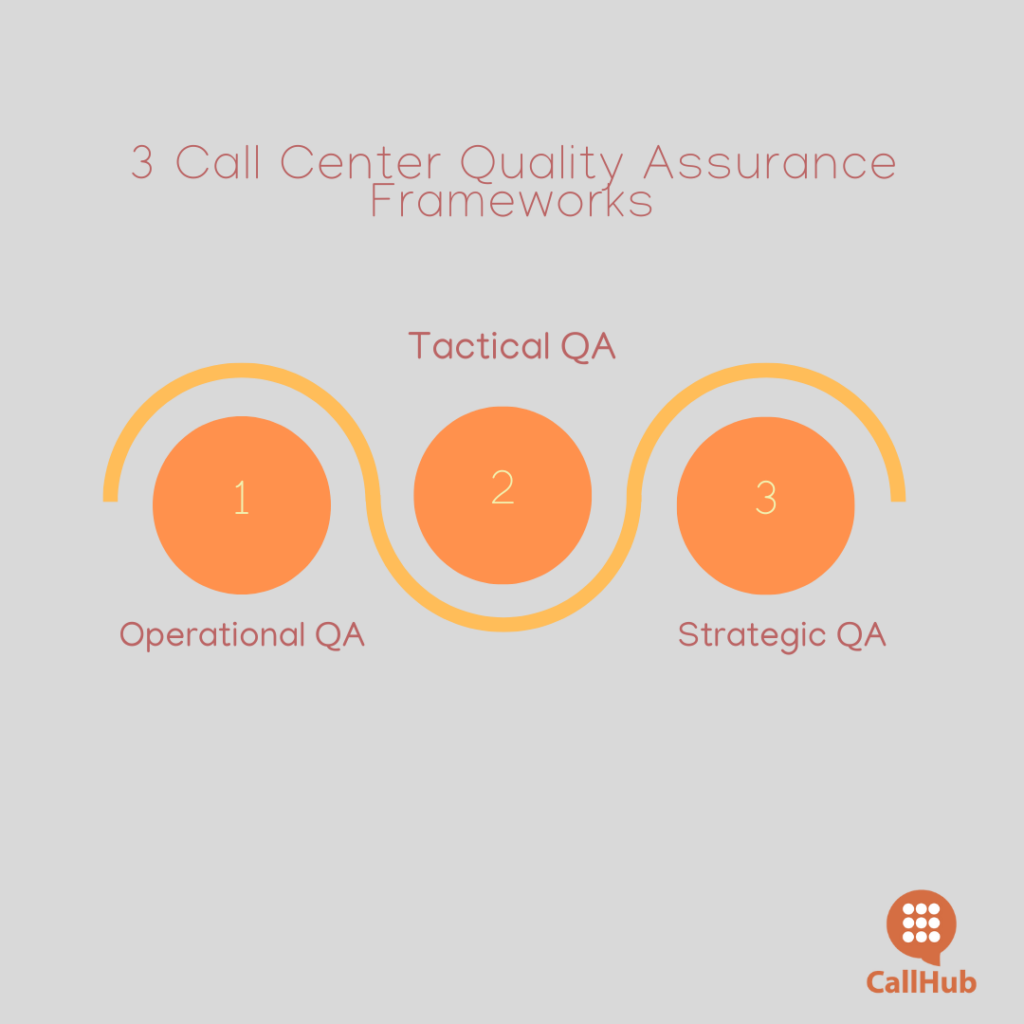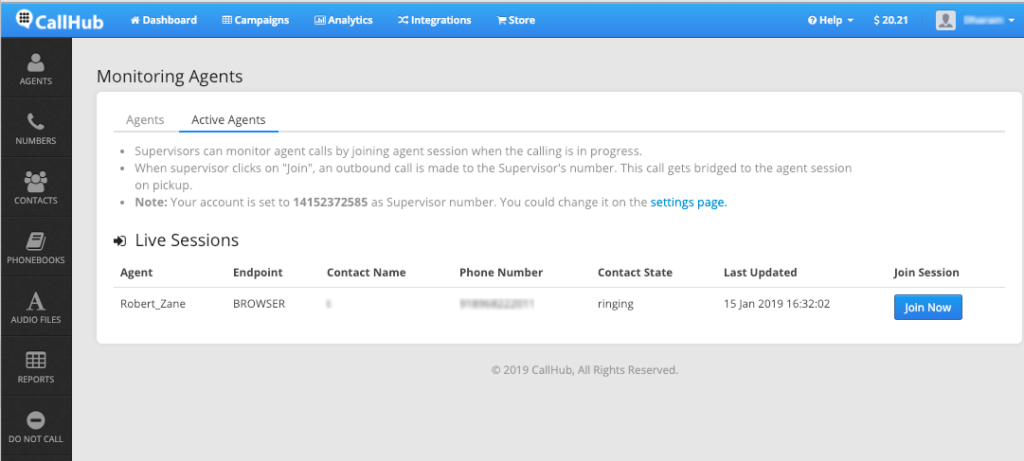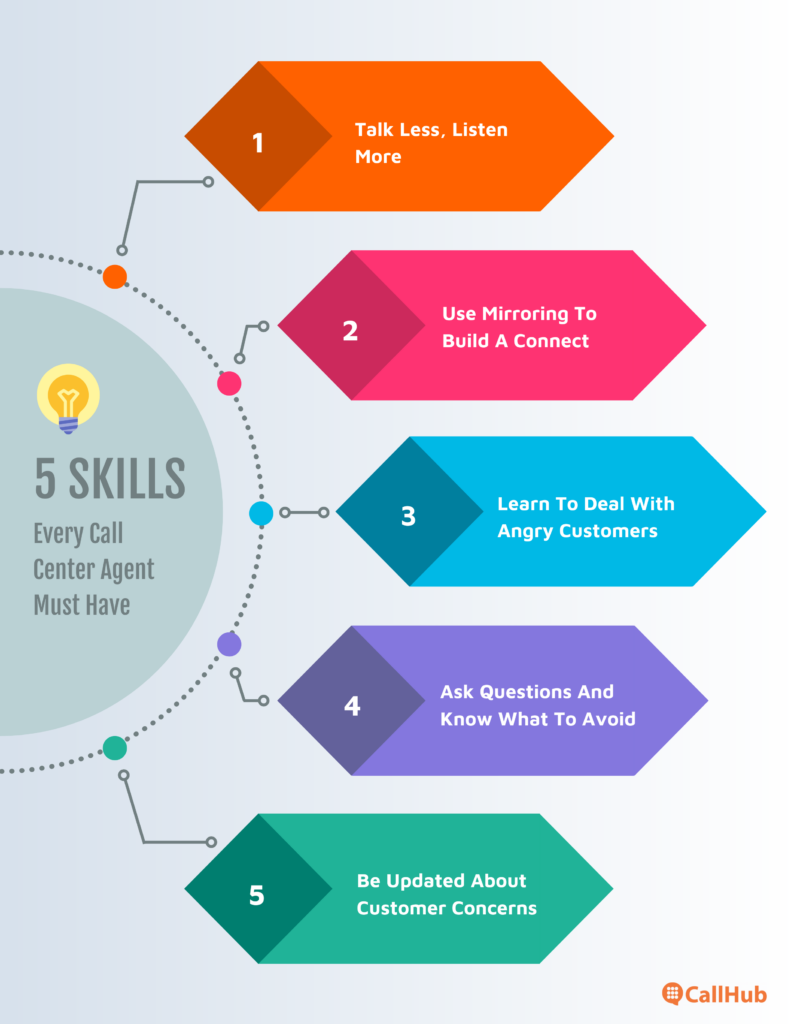If you ever need to be convinced about why call center quality assurance is essential, I have two reasons for you:
- An estimated 90% of U.S. customers reported that customer service was a deciding factor in giving business to a company.
- 58% of consumers say they would stop buying from a company with poor customer service.
Call center quality assurance addresses and improves customer experience but also goes beyond it, and it can affect every aspect of your business. Here’s how:
- It keeps a company’s operational costs low by maximizing agent performance.
- It helps customer retention.
- It unveils opportunities for growth for not just the customer service department but also the sales team, product team, and more.
This article explores call center quality assurance & call center quality assurance software, its challenges, and best practices.
What is call center quality assurance?
Quality assurance is a set of processes unique to your company to ensure that your call center performs according to predefined standards. Quality assurance is done by:
- Measuring agreed-upon KPIs: These could include goals for Average Handling Time, First Call Resolution, etc.
- Monitoring agent interactions: How well an agent can handle a query, their mannerisms on call.
- Implementing strategies to cover gaps in the team: Identifying areas in which your call center team can improve and providing training accordingly.
- Employing quality assurance specialists to guide your team: A professional expert opinion can be the difference between a good and a great quality assurance strategy.
We dive deeper into these points throughout the article.
3 call center quality assurance frameworks

Operational quality assurance framework
If you want to know how your call center is performing on a day-to-day basis, or know individual KPI performance, then operational quality assurance is for you.
When a call center starts with quality assurance (QA), operational QA is the first step to take. Operational call center quality assurance is concerned with the everyday performance of the call center, identifying performers and nonperformers, and implementing corrective strategies.
However, it only gives organizations a basic idea of their quality. If organizations want to dig deeper, they move on to the second stage of the framework- the tactical quality assurance framework.
Tactical quality assurance framework
What are some concerns that plague your customer service? This is a question that tactical quality assurance will help resolve. It identifies gaps in your workflows, issues that concern agents, and bottlenecks in the processes to focus on growth and scalability.
The tactical QA framework gives you a purview of the monthly and yearly goals and achievements. It uses previous monthly, quarterly, or annual data and leverages these insights to perform better.
Strategic quality assurance framework
Organizations work towards strategic quality assurance framework once they get the first two frameworks right.
Strategic QA focuses on long-term, company-wide goals, moving beyond the day-to-day, monthly or yearly performances.
The primary concern of strategic QA is to understand
- Customer loyalty,
- Brand reputation, and
- Employee success.
If you ever wonder, “How does customer service align with my company’s growth?” then strategic quality assurance is for you.
Here’s a handy reference to summarize the three frameworks:
| Operational | Tactical | Strategic |
| Concerned with day-to-day operations. | Uses monthly, quarterly and yearly data to make decisions. | Big picture, long-term company vision, and goals. |
| Focuses on individual KPIs and performance. | Observes bottlenecks in the workflows and issues that hinder the team. | Aligns customer service and call center operations with overall company goals. |
| Best used when a company is just starting the QA process. | It helps a growing company observe which processes work for them and which do not. | Helps an experienced team that has got the operational and tactical stages right. |
Call center quality assurance best practices
Implementing best practices while going through the quality assurance process will give you an estimate of the results you can expect. Here are the best practices you need to follow to know you are on the right path–
- Set your goals
- Don’t just listen, be insightful
- Train and refocus agents
- Get an external, expert opinion
- Use scorecards
- Gamify your call center
- Use intelligent technology.
Let’s read them in detail.
Set your goals.
It is always wise to know your destination before you set off on your journey. Similarly, your first step would be to define your goals. Ask yourself these three questions–
- What KPIs and metrics should I use?
Call centers commonly use metrics such as
- Average Handle Time (AHT),
- First Call Resolution (FCR),
- Customer Satisfaction Score (CSAT),
- NPS (Net Promoter Score), and so on.
You can begin with these metrics for your call center quality assurance.
Also, depending on your unique needs, ask yourself what would be essential to track. Is it customer reviews that showcase the effectiveness of an agent, for example?
- How will I monitor and analyze these metrics?
You need sophisticated tools to analyze the different metrics that you choose. Ideally, these are built into your calling campaigns’ software.
For example, you can measure agent efficiency through live call monitoring on CallHub. Listening to agent conversations is a highly efficient way to determine the success of your call center’s strategies. Here’s how it looks on CallHub’s platform:

- Based on this data, what will be my next steps?
Depending on what your data reflects, what would be the next steps you would take to improve your call center quality assurance? For example, if the first call resolution metric is low, are there concrete steps you can take to increase it?
Don’t just listen, be insightful
Quality is not only about how well an agent does on calls or their mannerisms. You need to identify the root cause of different problems. For example, is the average handling time high because agents are not trained sufficiently, or can the product improve to accommodate certain confusing steps to customers?
List down the insights you gather and add these observations to your strategy.
Train and refocus agents.
With critical metrics by your side and goals outlined, you can identify skill gap areas with agents and work proactively to improve them.
Use tools such as live call monitoring on CallHub to listen in to agents’ conversations and note how conversations can improve. You can also use notes to discover top-performing agents and use their strategies in your best practices training.
Bring in experts who can upskill agents and cover knowledge gaps within the team.

Read Next: 5 Call Center Communication Skills To Train Your Agents On Today
Get an expert opinion
You can get an expert opinion for your quality assurance call center in three ways:
1. Hiring an external QA team
Hire a third-party organization that can
- Access your data and insights and
- Provide critical feedback
- Gives actionable points to improve your quality.
Since they deal with contact centers regularly to improve processes, you will be in the right hands.
The drawback to this option is that it is cost-intensive, and data privacy could be an issue unless you agree on a solid contract beforehand.
2. Hiring a QA manager
A QA manager can become the internal quality assurance expert. They can provide expert advice without compromising data security since they work from within your organization.
A QA manager can also handhold your organization as it transitions from the three stages of quality assurance, from operational quality assurance to strategic quality assurance.
3. Forming an internal team of experts
If the options above do not entice you, then you can opt to identify experts within the team who consistently perform beyond expectations. Allow them to form strategies and standards for the call center to abide by.
The drawback to this method is that your internal team may not be exposed to best practices outside of your organization that can positively impact results.
Set goals and use scorecards.
Using clear criteria for measuring performance is essential to maintaining and improving quality. Conveying this criterion to agents lets them know what is expected of them and how they can contribute.
A call center scorecard can measure call quality and agent performance. A scorecard is a report card that tells you how your agents perform and whether your customers are satisfied with their experience.
You can completely customize a scorecard to measure metrics that matter to you. Once agents can track and reflect on their performance, research suggests that their performance increases phenomenally.
Gamify your call center.
Games are fun to play and increase team collaboration, competitiveness, and learning. In fact, by using gaming strategies, call centers can reduce call time by 15% and improve sales by around 10%.
With call center quality assurance metrics by your side, introduce games in your workflows to achieve your goals. Use call center quality assurance software that can guide you in this process.
Read Also: Your A-Z Guide To Call Center Gamification For Superb Results
Use intelligent technology
An outdated call centerquality assurance software could be one of the biggest bottlenecks facing your team.
To improve your call center quality assurance, you need to use a call center software that helps you:
- Easily segment and tag contacts.
- Share detailed performance reports with rich insights.
- Schedule callbacks swiftly.
- Take down notes to improve customer experience.
- Improve calling speed.
- Use more than one form of communication from the same dashboard.
- Reach thousands of contacts at incredible speeds.
- Stay compliant with local regulations and avoid fines.
- Save time and ensure cost-effectiveness.
| If you are looking for a solution that considers all these needs above, then we know the one for you. Try CallHub for a free 14-day trial, and you will see how the right technology can massively impact your call center performance. |
Now that we have explored call center quality assurance software and best practices, we might also want to keep an eye out for challenges a QA process can bring up.
Challenges to call center quality assurance
The call center quality assurance process is necessary but admittedly a challenging process. If it works, it can maximize your results and improve agent productivity. However, it has its fair share of challenges, such as—
- An enormous amount of data: While figuring out critical metrics, you could find yourself lost in a sea of data points.
- Deadlines: Although QA is a very long process, an organization must set deadlines to ensure the task is complete. Realistic deadline setting is a must for this process.
- Issues around privacy: The contact center quality assurance process dives deep into every area of performance, like monitoring agent behavior, calls, team interactions, workflow management, etc. Not everyone on the team would be thrilled with such an invasion of privacy. You must ask yourself how far is too far and what is necessary for this process.
- Outdated software: A call center’s software is what an instrument is to a musician. Without the right software, you cannot generate helpful reports, gain insights, improve performance, or track data.
Knowing precisely what you want to achieve from the quality assurance process will help you overcome most of these challenges. The end goal determines the process as much as the opposite is true.
With these insights into the call center quality assurance process, you can enhance how your team and organization function.
What’s next?
Contact center quality assurance is a difficult pursuit. By making technology a partner in improving processes at your organization, you can enormously improve performance.
Choose a call center quality assurance software that provides tools and resources to aid your team. Read our article, A Complete Call Center Software Buyer’s Guide, to know your options.
Featured Image Source: Ksenia Kartasheva


